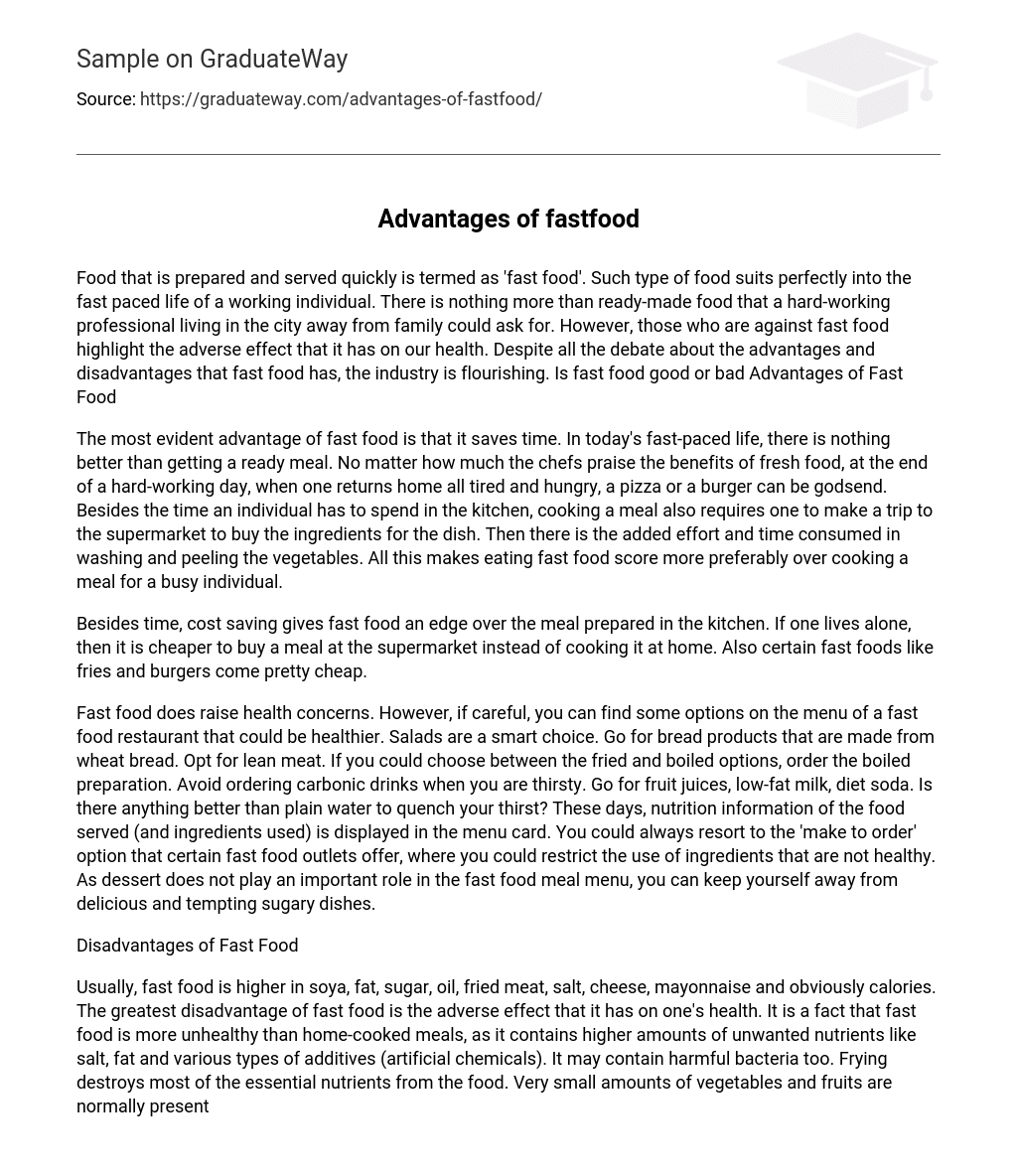Despite its quick preparation and service, fast food is popular among individuals with busy lives, particularly urban professionals who are away from their families. However, critics highlight the negative health effects associated with this type of food. Despite ongoing debates about its advantages and disadvantages, the fast food industry continues to prosper. This leads us to ponder whether fast food has positive or negative impacts.
In our fast-paced society, the convenience of pre-made meals offered by fast food is unmatched in saving time. Although fresh food is often praised by chefs, when one is exhausted after a long day, a pizza or burger can feel like a blessing. Moreover, preparing a meal not only demands time spent in the kitchen but also entails ingredient shopping at the supermarket and additional effort and time for vegetable washing and peeling. These factors collectively make fast food an attractive choice for individuals with busy schedules.
Choosing to eat fast food instead of making meals at home has benefits in terms of time and money. For people who live alone, buying a meal from the grocery store is a more economical option compared to cooking at home. Moreover, certain fast food items such as fries and burgers are offered at an inexpensive cost.
Despite the common association of fast food with health concerns, there are healthier options available. Choosing salads, whole wheat bread, and lean meats is a smart decision. When faced with the choice between fried or boiled options, it is preferable to go for boiled. Instead of carbonated drinks, it is best to opt for alternatives like fruit juices, low-fat milk, or diet soda when thirsty. And of course, plain water is always the best option to quench your thirst. Nowadays, many fast food menus provide nutrition information and list ingredients so that you can make more informed choices. Some fast food establishments even offer a “make to order” alternative where you can limit the use of unhealthy ingredients. It is advisable to resist indulging in sugary desserts as they typically do not have a significant role in fast food meals.
There are several disadvantages associated with fast food:
Fast food is notorious for its high levels of unhealthy nutrients such as soya, fat, sugar, oil, fried meat, salt, cheese, mayonnaise, and calories. It is widely acknowledged that fast food has detrimental effects on health when compared to home-cooked meals. This type of food often contains excessive amounts of salt, fat, and various additives (artificial chemicals) that can be harmful. It may also harbor dangerous bacteria. The frying process used in preparing fast food diminishes essential nutrients. Moreover, fast food typically lacks adequate servings of vegetables and fruits. Another concern is the practice of serving unnecessarily large portions which contributes to numerous health problems. Excessive salt consumption from fast food can negatively impact heart health and overall well-being too. Additionally, with a particular influence on children it plays a significant role in America’s obesity epidemic.
Fast food consumption, driven by our inactive lifestyle, causes fat build-up in our bodies. This unhealthy pattern is perpetuated by our choices and triggered by fast food, leading to complications like cardiovascular diseases, heart-related illnesses, high blood pressure, and joint diseases. Recent studies indicate that individuals living in close proximity to fast food establishments face a 13% greater risk of strokes compared to those residing farther away.
The bill at a fast food restaurant increases as more people attend the meal. Fast food dining is only cost-effective for individuals. Occasionally dining at a fast food restaurant with family has minimal impact. However, regular visits to these establishments with family can be both expensive and detrimental to health.
The presence of fast food establishments is causing families to spend less time together. Family mealtime is a chance for members to gather and share experiences, but fast food joints are taking away this valuable time. This is particularly evident among young people who see fast food centers as a popular hangout spot with friends and peers.
Although fast food is often seen as a convenient and time-saving choice due to its pre-made meals, it is crucial to recognize the drawbacks associated with it. The excessive amounts of fats and salt found in these meals have sparked concerns regarding their detrimental impact on our overall well-being. Nevertheless, by being mindful when selecting our orders and integrating regular exercise into our everyday schedule, we can mitigate the adverse consequences of consuming fast food.





